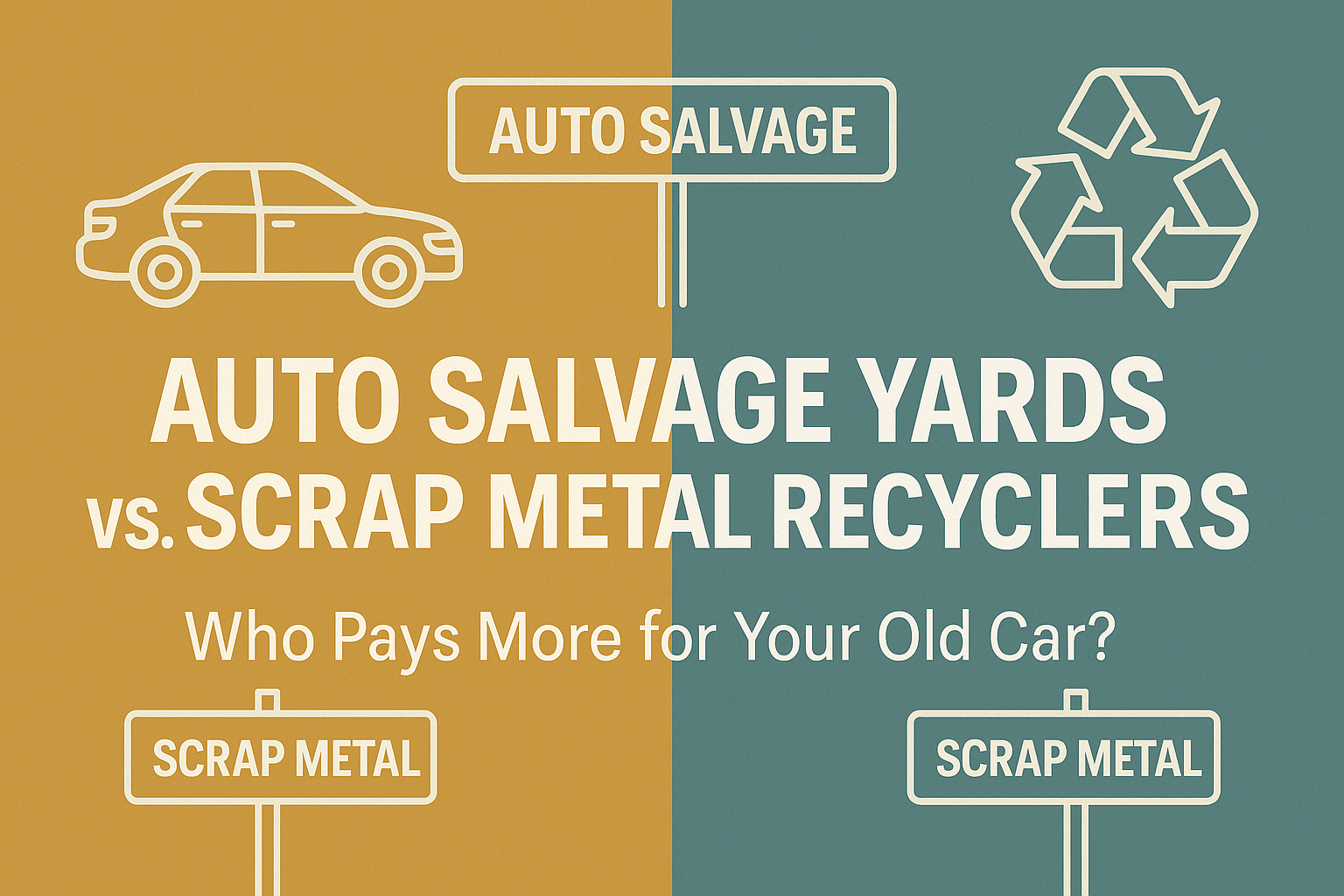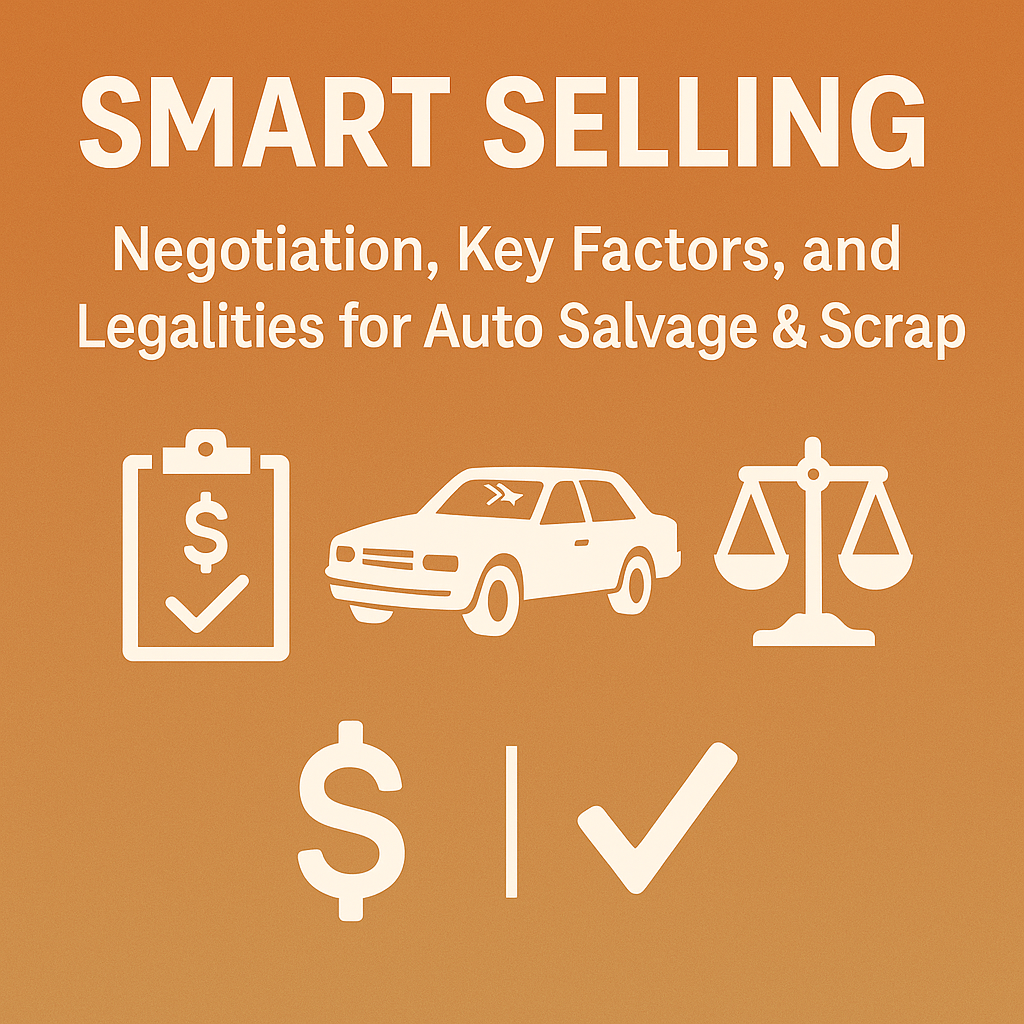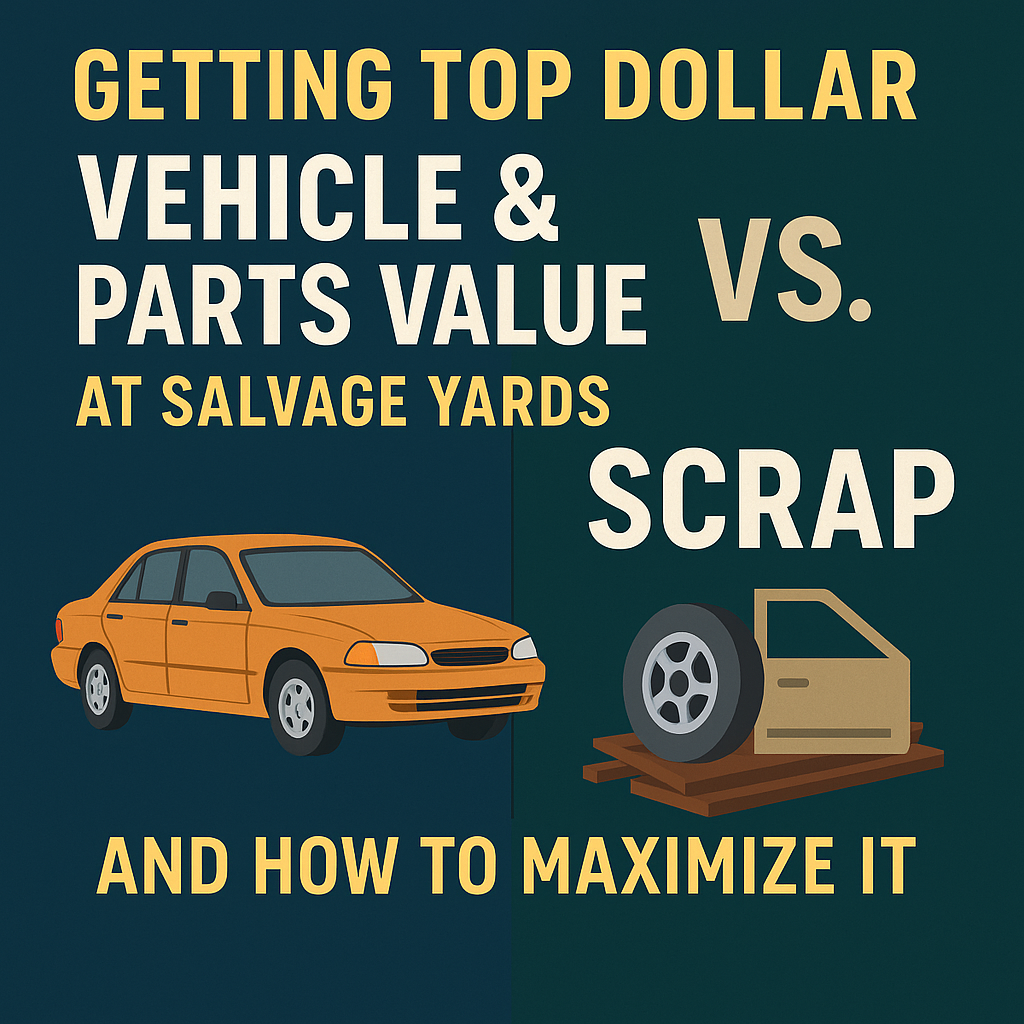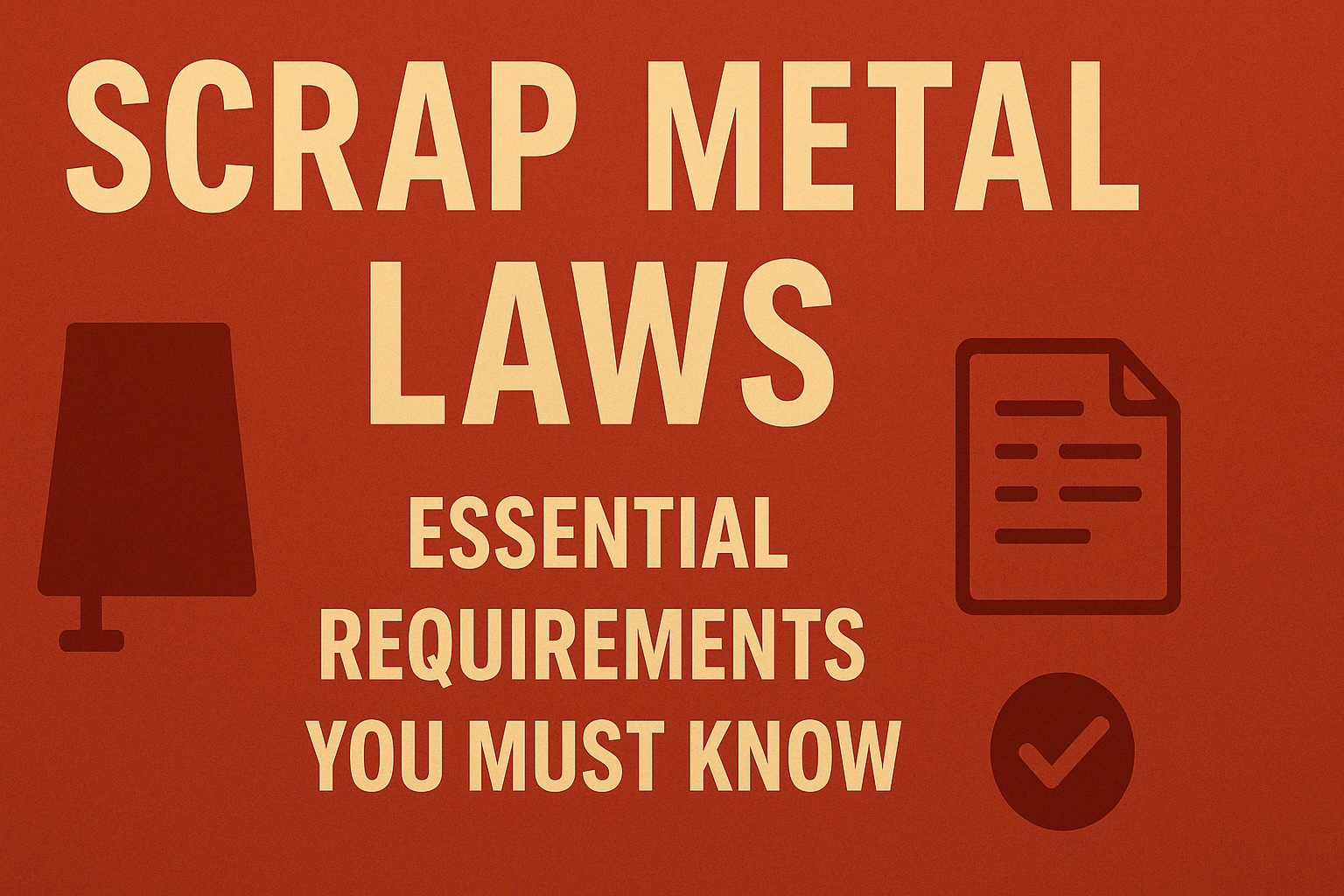Post 1 of 3: Auto Salvage Yards vs. Scrap Metal Recyclers: Who Pays More for Your Old Car?

When your vehicle reaches the end of its useful life, you’re faced with a critical decision: how do you get the best possible return for it? Two main options stand out—auto salvage yards and scrap metal recyclers. While both will pay you for your car, they operate very differently, value different aspects of your vehicle, and will offer varying sums. Understanding these core differences is the first step to maximizing your payout.
This article—the first in our three-part series—lays the groundwork. Here, you’ll discover the fundamental business models of auto salvage yards and scrap metal recyclers, and learn what each values most in your end-of-life vehicle.
The Core Differences: Business Models Explained
The amount you’re offered by an auto salvage yard versus a scrap metal recycler hinges on their distinct business objectives and profit strategies.
Auto Salvage Yard Operations: Focused on Resale
Primary Goal:
Auto salvage yards (also known as junkyards) acquire vehicles to harvest reusable parts. These parts are then inventoried and sold to customers looking for affordable repairs or restoration components. Some salvage yards may even restore and resell complete vehicles.
Inventory & Customers:
Their process involves careful dismantling, inspection, and cataloging of usable parts. Clients include DIY mechanics, auto repair shops, and car owners searching for budget-friendly alternatives to new OEM parts.
Pricing Strategy:
Salvage yards make their money by marking up individual parts. The price they offer for a vehicle is based on the estimated collective value of its marketable components—minus labor, overhead, and desired profit. A car with lots of in-demand, salvageable parts will always fetch a higher price.
Scrap Metal Recycler Operations: Focused on Material Recovery
Primary Goal:
Scrap metal recyclers are mainly interested in the raw materials your vehicle contains—especially metals like steel, aluminum, and copper. Their business is about acquiring, shredding, sorting, and processing these metals for resale to foundries and mills.
Volume & Market Dynamics:
Recyclers thrive on high volume and lower margins. The total weight of the metal is the main value driver, and the prices they pay depend on daily fluctuations in global commodity markets. Even small quantities of precious metals—like those in catalytic converters—can make a difference.
How This Impacts Your Payout:
- If your vehicle, even if non-running or damaged, still has valuable and functional parts, a salvage yard will likely offer more, based on the resale value.
- If your car is at the absolute end, with few or no usable parts, a scrap metal recycler might pay more, based solely on its weight and the current metal prices—especially when those rates are high.
What Auto Salvage Yards Value Most
When a salvage yard appraises your vehicle, they’re looking for:
- High-demand replacement parts: Alternators, starters, radiators (in good condition).
- Late-model vehicles: Newer cars, even if wrecked, have many desirable parts.
- Specialty and rare parts: Components from classic, rare, or specialty vehicles.
- Working engines and transmissions: Always in demand and valuable.
- Good body panels: Doors, fenders, hoods—especially if dent- and rust-free.
- Functional electronics: ECUs, BCMs, infotainment systems from modern cars.
Salvage yards pay premium prices when:
Your vehicle is a popular model with high parts demand, is relatively new, has key components in good condition, or is a specialty car with rare parts.
What Scrap Metal Recyclers Value Most
Scrap metal recyclers care about:
- Metal content by weight and type: More weight and more valuable metals (like aluminum) mean a better price.
- Catalytic converters: Highly prized for their platinum, palladium, and rhodium.
- Clean metal separation: Less contamination by plastics or upholstery.
- Ease of processing: Standard vehicles that don’t present unusual challenges.
- Current metal market rates: Fluctuations directly impact offers.
Recyclers may offer better deals than salvage yards when:
The vehicle is very old with obsolete or unusable parts, is heavily damaged or stripped, or when scrap metal prices are unusually high.
Bottom Line: Who Pays More for Your Junk Car?
Understanding these foundational differences is crucial to getting the best deal for your old vehicle. If your car still has desirable, working parts—or is a newer or specialty model—a salvage yard may pay you significantly more. If your vehicle is truly at the end of the road, stripped of valuable parts, or is a rusted shell, a scrap metal recycler could offer the higher payout, especially if metal prices are high.
In our next article, we’ll dive deeper into how specific car types, brands, and even individual components influence your potential payout—and how to actively maximize what you get.
Need help deciding where to sell your junk car? Have questions about local auto salvage yards or scrap metal recyclers? Contact us for expert advice or check our directory for trusted buyers near you!
Continue to Next: Getting Top Dollar – Vehicle & Parts Value at Salvage Yards vs. Recyclers for expert negotiation tactics, insights into regional and seasonal price influences, and crucial legal and environmental considerations.
More in Car Recycling
View All Articles
Post 3 of 3: Smart Selling: Negotiation, Key Factors, and Legalities for Auto Salvage & Scrap
Learn how to negotiate the best price for your old car, understand key legal and regional factors, and ensure responsible disposal when selling to auto salvage yards or scrap metal recyclers.

Post 2 of 3: Getting Top Dollar: Vehicle & Parts Value at Salvage Yards vs. Recyclers (And How to Maximize It)
Learn how different vehicles and car parts are valued by salvage yards vs. scrap metal recyclers. Discover hybrid strategies to get the highest payout when selling your old car.

Alabama Scrap Metal Laws: Essential Requirements You Must Know in 2025
Alabama's scrap metal industry operates under strict regulations designed to combat theft and ensure legitimate transactions. Whether you're a scrap yard owner, automotive dismantler, or individual selling metal, understanding these laws isn't just important—it's legally required.
Ready to Turn Your Scrap into Cash?
Find the nearest scrap yards and get the best prices for your metal recycling needs.